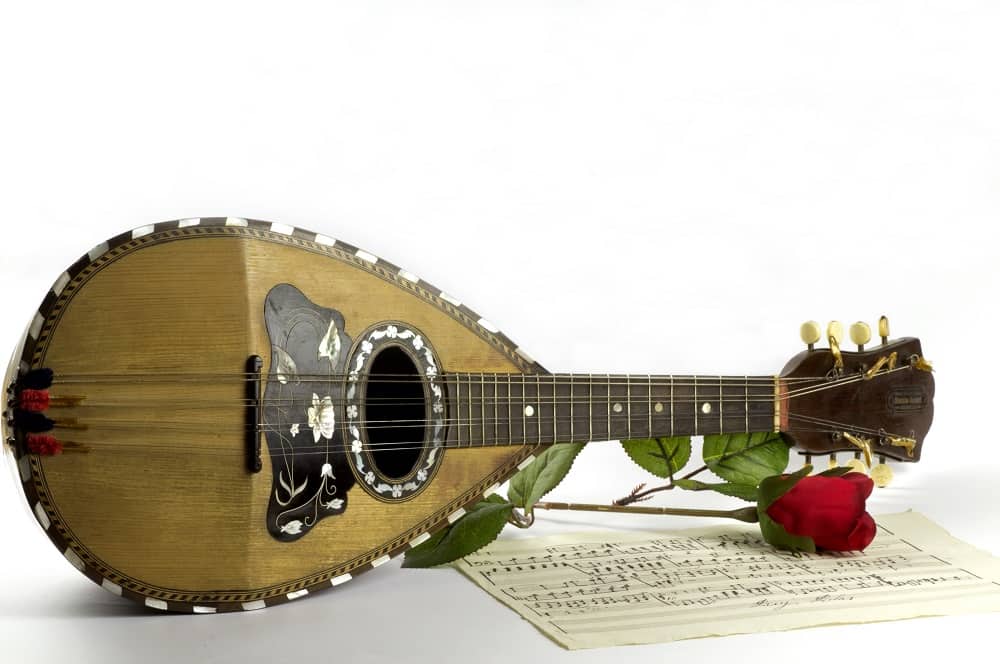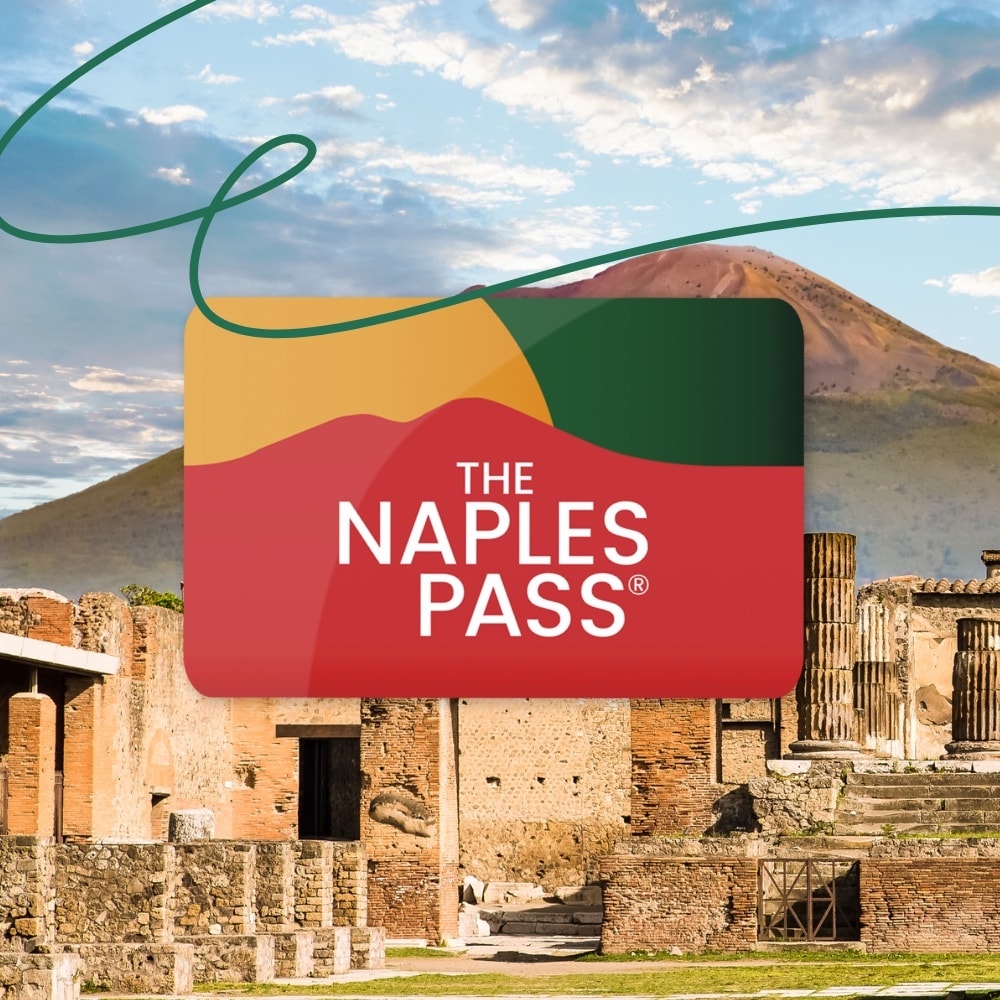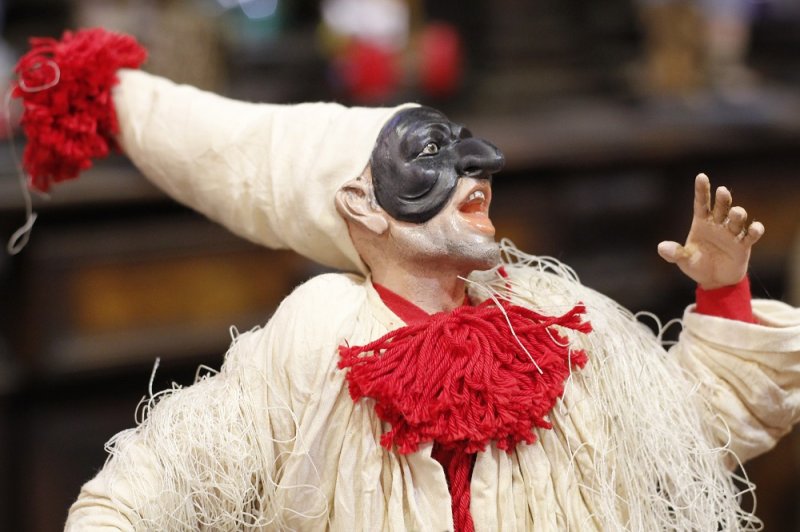The origins

After he visited the city at the end of the XVIII century, Goethe said "See Naples and then die", and it has become a farsighted statement left to posterity. The beauties of Naples could have not been better described. However, the city also boasts a fascinating singing heritage whose historical origins make folklore and culture intertwine. With its own well-defined identity, Naples music is today known all over the world.
The Neapolitan songs represent the city as much as the delicious sfogliatella and the charming residential district of Posillipo. After all, the Neapolitan people are also known for their artistic spirit and that’s a fact.
So, Naples' music origins are definitely popular. In the early 13th century, the very first traditional songs appeared. At Frederick II of Swabia’s court, the housewives sang songs that were essentially prayers addressed to the Sun for it to be able to dry the laundry, to make their workload less heavy.
From villanella to tarantella
However, the first written evidence of Naples music historically dates back to the 15th century, when the Neapolitan idiom became the official language of the Kingdom of Naples. The earliest pieces were written for court’s farces and folk songs up until a freshly born fixed metric-scheme composition called villanella took their place. The songs were so appreciated they were chosen for plays staged throughout Europe. The villanellas were entirely interpreted in the language of the Kingdom and, for this reason, they were also known as Canzoni alla napoletana (“Neapolitan songs”).
After two centuries as the undisputed most popular composition, the villanella gave way to a new melody made up of new rhythms and typical-instruments accompaniments, such as the famous mandolin. The tarantella prevailed both as a music style and as a dance for the whole XVIII century.

The songwriting was born
Until then, the topic of the poems had been designed for entertainment, so they had mainly focused on love plots, folk tales, and satire. Following the events of 1799 that led the Neapolitan people to face several clashes and internal struggles for the control of the Kingdom, the Neapolitan song ineluctably lost the joy and joviality that had distinguished it as far as then.
Dating back to this period, there are just a few and fragmentary news of the characteristic folk songs. In particular, Naples harbour was used as a natural theatre where performances inspired by epic tales took place, and whose songs were mostly improvisational texts and melodies. Therefore, no written testimony.
Nevertheless, not everything got lost. Some people used to collect, write down and transcribe the best of the improvised songs. They were the so-called musici ambulanti (itinerant musicians), thanks to whom it has been possible not to miss masterpieces of this fascinating popular tradition until the very first record industry was born.
At the time, the number of musical score copies sold – the so-called copielle – measured a successful song. They played a fundamental role in the development and spreading of Neapolitan songs until the first 78 giri appeared (the ancestor of vinyl records) in the following century. Te voglio bene assaje is usually identified as the symbol of the transition from popular Neapolitan music to the very songwriting. It sold 180,000 copies and, considering that the maximum sales ceiling until then had been 10,000 copies, it in essence means that people could sing the song all over the city.
The golden period of classical Neapolitan songwriting began in 1880 with Funiculì funiculà and continued for the first half of the twentieth century, giving masterpieces such as 'O sole mio, Torna a Surriento, 'O surdato 'nnammurato, Malafemmena, 'O sarracino and many others.
A singing journey from Naples to the Americas

Naples music exportation abroad has undoubtedly been influenced by the Italians emigration to the American continent that, in almost a century of history between the second half of 1800 and a half 1900, paved the way for a real diaspora. Along with many dreams and hopes, an Italian who left for the Americas put hope for the return in his/her suitcase. The ones who emigrated seldom turned into Americans, but they kept and spread their Italian spirit, wherever they lived all over the world. Hence, what could express the Italian spirit more than the music of his/her city for a Neapolitan?
In this sense, the North American recording industry played a fundamental role in the Italian emigrated community and its Americanisation. Turning immigrants into Americans was tricky; the Neapolitan people and the historic-cultural heritage of their music had a strong identity, and that was a fact to be necessarily taken into consideration.
Tu vuò fa l'americano

Renato Carosone is one of the most important Neapolitan music's overseas proponents. Written by his trusty lyricist Nicola Salerno, his Tu vuò fa l'americano (1956) was the first untranslated Neapolitan song imported in the United States. Its success was immediate.
How to make an American understand what it means to be an Italian transplanted to another continent?
Tu vuo' fa' l'americano
'Mericano, mericano
Ma si' nato in Italy
You want to be an American,
but you were born in Italy
Through the intense and overwhelming rhythms typical of the ‘50s popular swing and jazz style, the song ironically portrayed a young Italian boy (or rather, Neapolitan boy) who behaved as a Yankee, wanted to mingle in the American crowd, and who tried so hard to be part of that culture, but who was just unable to.
Carosone wondered in the song:
Comme te po' capi' chi te vo' bene
Si tu le parle miezo americano?
Quanno se fa l'ammore sott' 'a luna
Comme te vene 'ncapa 'e di' "I love you"?
How could your lover understand you,
if you speak to her in American?
How can you think saying "I love you"
while you make love?
The song seems to suggest that the real Neapolitan remains himself wherever he is in the world. So Neapolitan songs don’t feel threatened by any external pressure and they preserve their heritage, as well as the Neapolitan people did for centuries.
Inspired by this song, Vincenzo and Pasquale Anatriello, two young brothers who for years have been working as stylists and pattern makers in footwear for Italian and foreign companies, founded the Natè in Italì Brand. The starting point of the idea, was given by this famous song by Renato Carosone.
The brothers summarize the beginning of their corporate adventure in this way: "YOU WANT TO BE AMERICAN" ...... we often follow distant models, thinking in a wrong way that the "different" is what makes fashion. The "different" should make us trendy but it changes ourselves so much that we aren't recognized. "
The Anatriello brothers want to combine innovation and tradition inherited from the family.
And they continue like this: "We focus on the tradition and the Italian character of each component (from leathers to linings, from insoles to the sole, from labor to the idea that everything generates). Now it has been necessary to focus on our Bel Paese, not only to be competitive, but above all to demonstrate that professionalism is not improvisation, but work and dedication, research and sweat, hours of work. "
Neapolitan legacies

Although in a self-ironic key, Carosone’s masterpiece made it clear that the voice of Naples had its own historical, linguistic, and cultural identity and it showed us that it was ready to defend its legacy without hesitation.
The Naples music and its fascinating melody continue to live today thanks to the authors and the performers who have continued what the great ones of the past have handed down to them. Among the most remarkable exponents nowadays known, it is worth mentioning Eduardo Bennato, Eduardo De Crescenzo, Massimo Ranieri, and Pino Daniele who passed away 6 years ago.
About the author
Written on 22/01/2021




Sabrina Fabozzi
Naples music is an artistic-cultural heritage that flows in the veins of the city. Discover its history through our article!